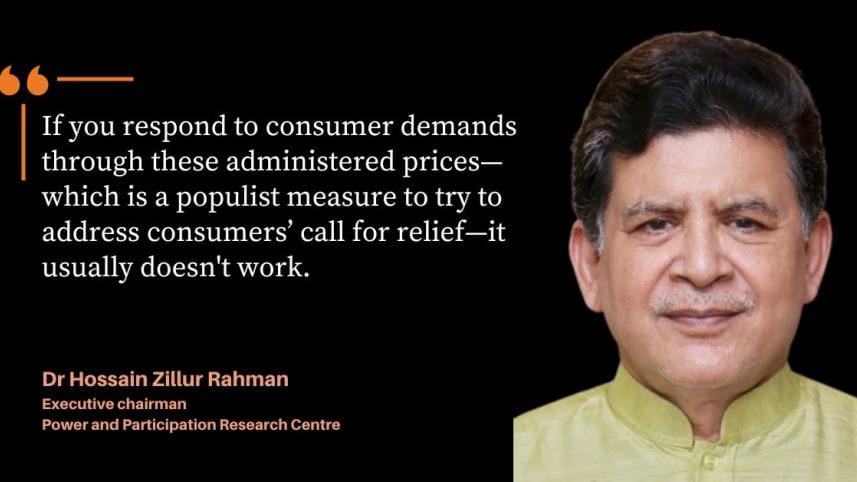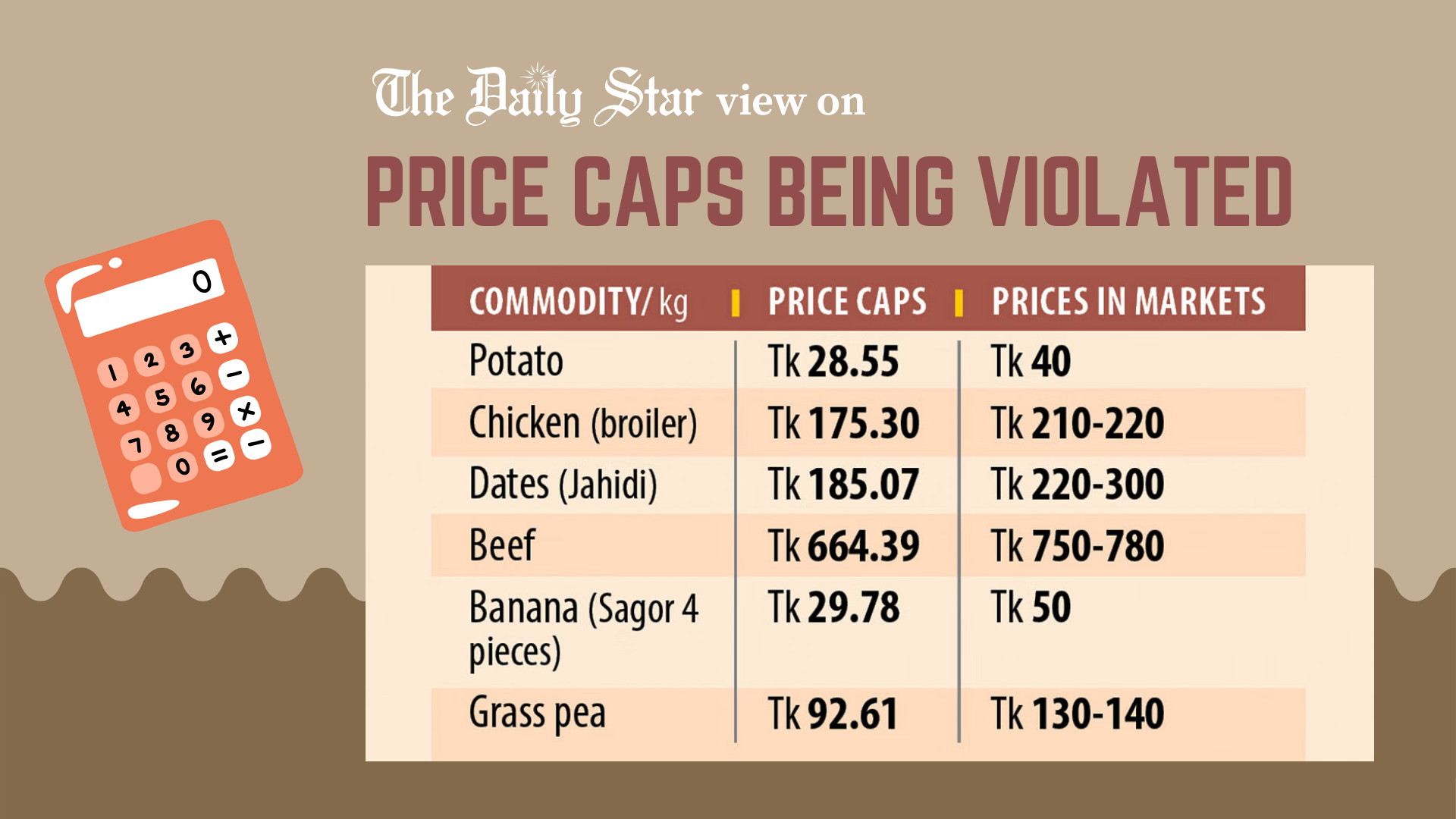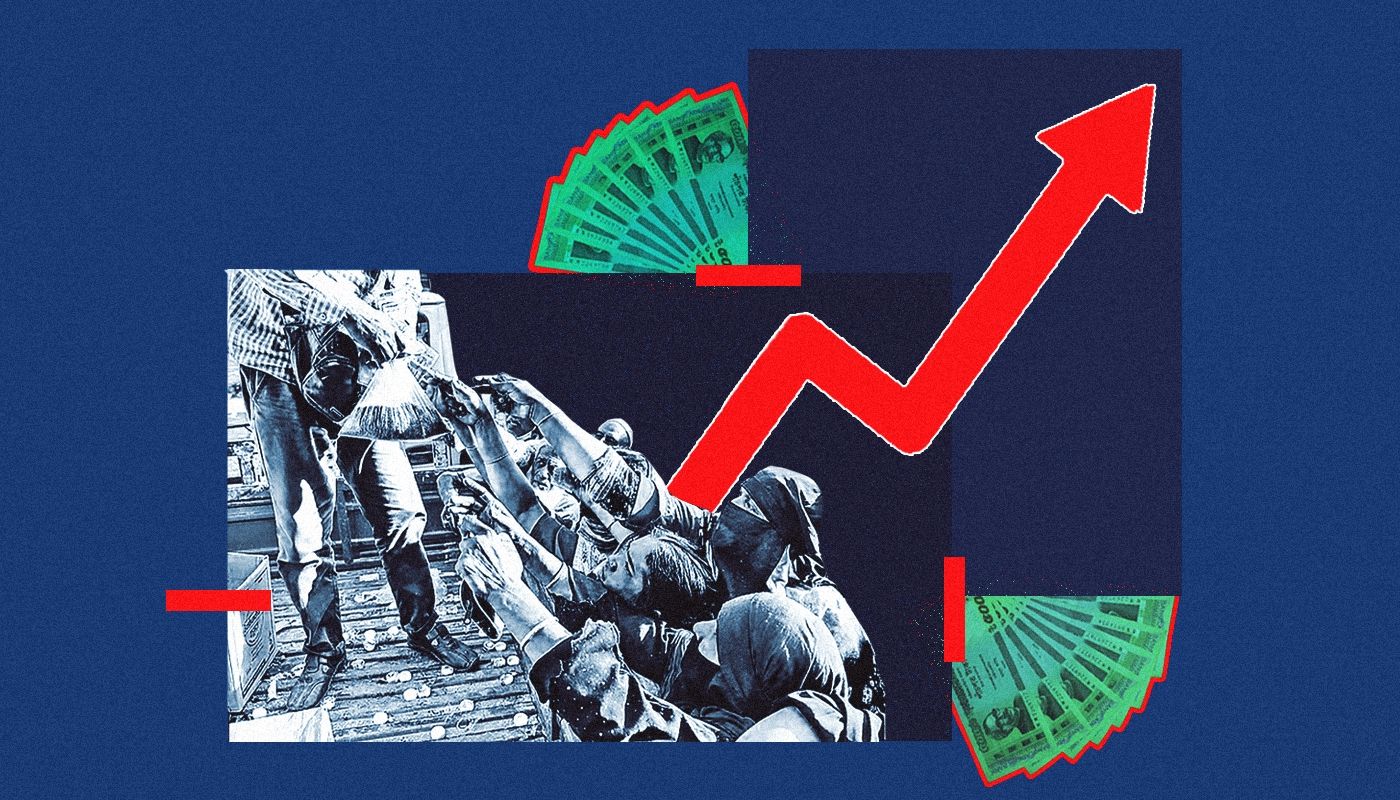‘Administered prices don’t work’

Dr Hossain Zillur Rahman, executive chairman of Power and Participation Research Centre (PPRC) and former adviser to the caretaker government, speaks with Tamanna Khan of The Daily Star about effective and ineffective government interventions to rein in high prices of essentials.
Recently, we have seen that the interim government tried to fix the prices of chicken and eggs to no avail. Previous governments also made similar efforts without success. Why does this measure fail?
If you respond to consumer demands through these administered prices—which is a populist measure to try to address consumers' call for relief—it usually doesn't work. Decision-makers, meaning the government, have to have an updated understanding of the realities of the supply chain, not a theoretical understanding. They need to understand whether there are blocks somewhere and if those blocks can be overcome. For example, are there groups who are in a way exerting pressure on the market prices?
We often hear that market syndicates are responsible for artificially raising prices. Who are these syndicates?
Syndicate has been a widely used term for many years now. The syndicate is a reality; it is a unified group of market players who can control the supply chain and also influence the policymakers in that space. That was what we saw during the ousted regime.
When the commerce minister of the Hasina government said he couldn't do much, he was basically saying that he was part of the syndicate, so he couldn't do much.
Now the situation is different. However, we need to understand how far the syndicate is still influencing the supply chain. They are unlikely to disappear anytime soon. Although the current policymakers are not necessarily aligned with them, they have to be effective in terms of understanding and influencing the supply chain management if they want to act on certain variables that can affect the supply chain.
Being non-political doesn't automatically make the government effective in this matter. They need to understand if the influence is in the policy process or if it is just bureaucratic. Are the policymakers on top of the bureaucrats? Do they have a field understanding? I haven't seen much effort by the incumbent government to go out and understand the field realities of supply chain management.
What should the government do then?
They have to find the answers themselves. I am also not fully aware of the supply chain realities right now. But trying to control the market with a law-and-order mentality doesn't work.
There can be other measures. For example, when people hold supplies in storage, they rely on bank credit for these sorts of businesses. The Bangladesh Bank has the option to play with the terms of these bank credits. Say, I'm a supplier and I've taken Tk 1 crore bank loan, and I'm holding the supplies in the storage and not releasing it in the market, and my loan will mature in 90 days. Here, policymakers can change the loan maturity tenure to 30 days. Then I have no option but to sell the goods. This sort of interventions requires a good understanding of the supply chain processes and the current realities. Is the price higher because there is an actual lack of supply or is it because the supply is being held somewhere and not released?
Also, if producers say that they need to charge a higher price because of the high cost of production, then the question should be how the cost of production can be reduced.
Are there opportunities to bring down this cost of production that will automatically have an impact on the price? Are there opportunities to improve supply chain management? Are there incentives to be provided?
Besides, the government can always play the role of becoming a market player itself through open market sales (OMS) and other similar tools. They can expand the OMS policy in a bigger way, which will put pressure on the suppliers, who are withholding supplies.
Of course, it depends on whether the government has the fiscal capacity to do that.
Another way to approach this is by looking at the types of incentives that can be given to growers, seed producers, traders, exporters, or importers of say animal feed or various types of agricultural inputs. They can have a look at the whole incentive system and creatively try to incentivise those who may improve the supply chain, which would result in more rational prices.
So, there are three areas the government should look at: i) the incentive for growers, importers, etc and looking at how production can be boosted; ii) the governance of the supply chain, where financial instruments like loan maturity can be used as control tools; and iii) governance issues, for example barriers created by chandabaji (extortion). The known chandabaj (extortionists) may not be around now, but are there new chandabaj on the prowl? Can we contain them in a way?
Some of these syndicates or those who are responsible for high prices often come up with a counter-argument that these are market processes. They keep the prices high and manage the processes for their own interest. But the government should manage the market process in the interest of general people. And it has the instruments needed to do so. It just cannot rely on bureaucratic structures, but also go out in the field, as I mentioned before.
Is there a way to create a market monitoring mechanism?
Again, we are very fond of bureaucratic solutions. If the market monitoring process means another committee to be appointed, I'm sceptical of that. Monitoring is a dynamic activity and several monitoring processes already exist. For example, the Bangladesh Bureau of Statistics (BBS) is supposed to produce a consumer price index regularly. BBS can be given the additional responsibility of updating their capacity for this particular task and making the data available timely. Then there is the Bangladesh Competition Commission under the commerce ministry, which has certain market monitoring responsibilities. Unfortunately, all of these remain very textbookish and bureaucratic in nature. They tend to just focus on punishments, which is not effective.
Bureaucrats are very fond of punishments. They go out to the market and dole out punishment to the rule-breakers. While punishments sometimes work and should be a part of the policy package, they cannot be at the centre of the policy package. Market monitoring requires updated, usable data, which is available to multiple users in the policy process. Besides, civil society bodies like the Consumers Association of Bangladesh can also be activated to play a bigger role. This government has an opportunity to do something new. They can go out to the field and activate all this more dynamically.
Do higher prices trickle down to the producers? And who gets the biggest share of the pie?
That is a supply chain reality. For example, what kind of value addition is happening? If you look at rice prices, typically it should come down after harvest. For some years, this has not been happening. Rice millers are a very important group in this whole process. In 2008, as then commerce adviser, I went out to Naogaon to get a firsthand impression on this because Naogaon is the miller capital of Bangladesh. Millers make big investments and they are an important player. But are they a syndicate? What is their capacity to withhold or not withhold a product from the market? In the case of rice supply, government procurement drives typically have been very political. The actual farmers have not benefited from this drive—middlemen have.
Does it trickle down? In many cases, it doesn't. But we have to look at it empirically. We cannot assume that it does not. The consuming middle class opinion-makers of Dhaka tend to think of the middlemen as villains in every case. However, we conducted a study in 2006 from the PPRC on the marketing process. We found that the faria—those who go out and collect the produce from the growers or primary markets to shift to the next market level—are also part of the extreme-poor group. They often don't have access to good finance. Agricultural trade is an extremely risky business, especially for those who put money there.
So, while some middlemen are villains, we cannot tag everyone in that category. Also, without middlemen, the produce will not travel from the field to your table; there are multiple layers and chains. And there is a process; people make profits at different levels of this process.
Follow The Daily Star Opinion on Facebook for the latest opinions, commentaries and analyses by experts and professionals. To contribute your article or letter to The Daily Star Opinion, see our guidelines for submission.
 For all latest news, follow The Daily Star's Google News channel.
For all latest news, follow The Daily Star's Google News channel. 


Comments